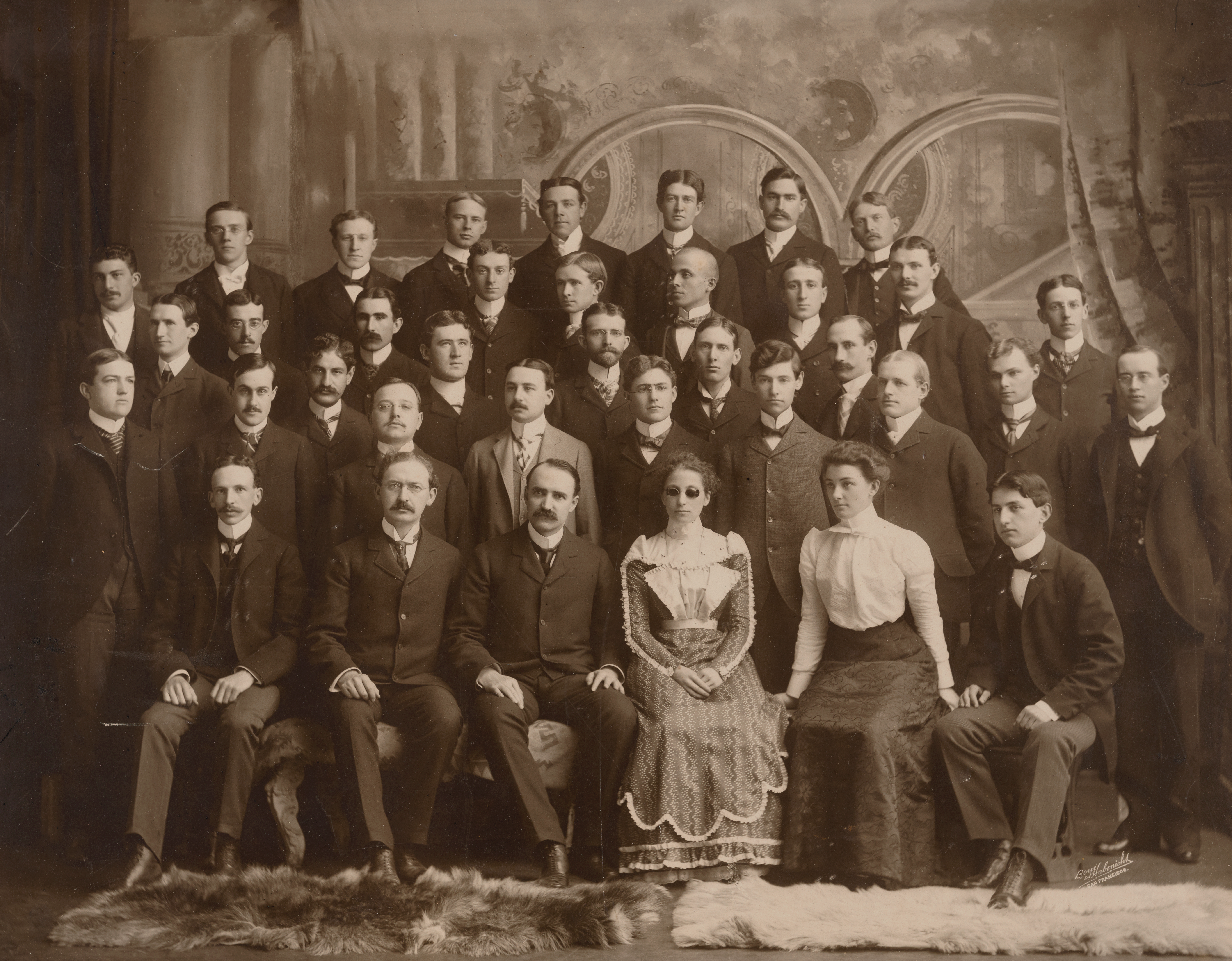Let the Record Show: California’s First Blind Woman Attorney Fought for Inclusion

Christine la Barraque (third from right, bottom row) defied expectations to become California’s first blind woman attorney after graduating from UC Law San Francisco in 1899. Pictured here with classmates and professors in 1897, la Barraque was accompanied by her reader (to her left), who assisted her by reading aloud. The historic photo was acquired from an auction house with funds provided by alumni and donated to the San Francisco History Center, San Francisco Public Library.
Long before the U.S. passed anti-discrimination laws for people with disabilities, a blind trailblazer who graduated from UC Law San Francisco refused to let society define what she could accomplish.
Christine la Barraque made history in 1899, becoming the first blind woman licensed to practice law in California, the same year she graduated from what was then UC Hastings. But her story doesn’t stop there—la Barraque was also a celebrated singer, tireless advocate, and compassionate volunteer who left a profound mark on her community.
Born in France, la Barraque moved to the United States at age 12 after losing her sight to an illness as a toddler. She earned a linguistics degree from the University of California in 1896, becoming the first blind woman to graduate from the institution, which at the time had only one campus in Berkeley.
“Nobody thought I could get through the university,” she recalled in a 1906 interview with the Indianapolis News. With the support of readers—individuals who assisted by reading aloud—she overcame the odds. She was inspired to pursue law despite being told it was “absurd” by professors. She worked as a night school teacher to fund her education and graduated near the top of her law class, according to a 1907 article in Century Path magazine.
Though she struggled to establish a career as a blind attorney, la Barraque never allowed setbacks to define her. Relocating to Boston, she followed another passion—music. After studying at the Boston Conservatory of Music, she began performing songs as “the Lady with the Green Veil,” captivating audiences across the country. Many listeners were unaware she was blind, a detail often mentioned in her obituaries.
La Barraque also used her voice to drive social change. In Boston, she testified before the Massachusetts State Legislature in favor of creating a commission to support employment and social services for blind individuals. Her advocacy helped establish the commission in 1906.
Later, she returned to San Francisco, where she became a sought-after voice teacher and a fierce advocate for disability rights. Known as “the blind soprano,” she performed widely with her students, frequently earning mentions in the San Francisco Chronicle in the 1910s and 1920s. Her activism extended to public speaking engagements, where she urged employers to recognize the potential of blind workers.
In 1927, la Barraque became president of Workers for the Blind, a free employment agency that secured jobs for 375 blind individuals. Among the positions filled were piano tuner, janitor, dictation machine operator, insurance expert, and news reporter.
During both world wars, la Barraque also supported veterans, assisting soldiers who lost their sight or mobility in rebuilding their lives. The UC Law SF Alumni Bulletin from 1961 highlights her leadership in re-educating injured soldiers.
For 45 years, la Barraque resided at the Beverly Plaza Hotel at Grant Avenue and Bush Street, now the site of San Francisco’s iconic Dragon Gate in Chinatown. She was in her 90s when she passed away Feb. 10, 1961.
La Barraque is still remembered for breaking barriers as the first blind woman licensed to practice law in California and as a strong advocate for people with disabilities.
Let the Record Show is an occasional series that showcases people, moments, and milestones from UC Law San Francisco’s past.